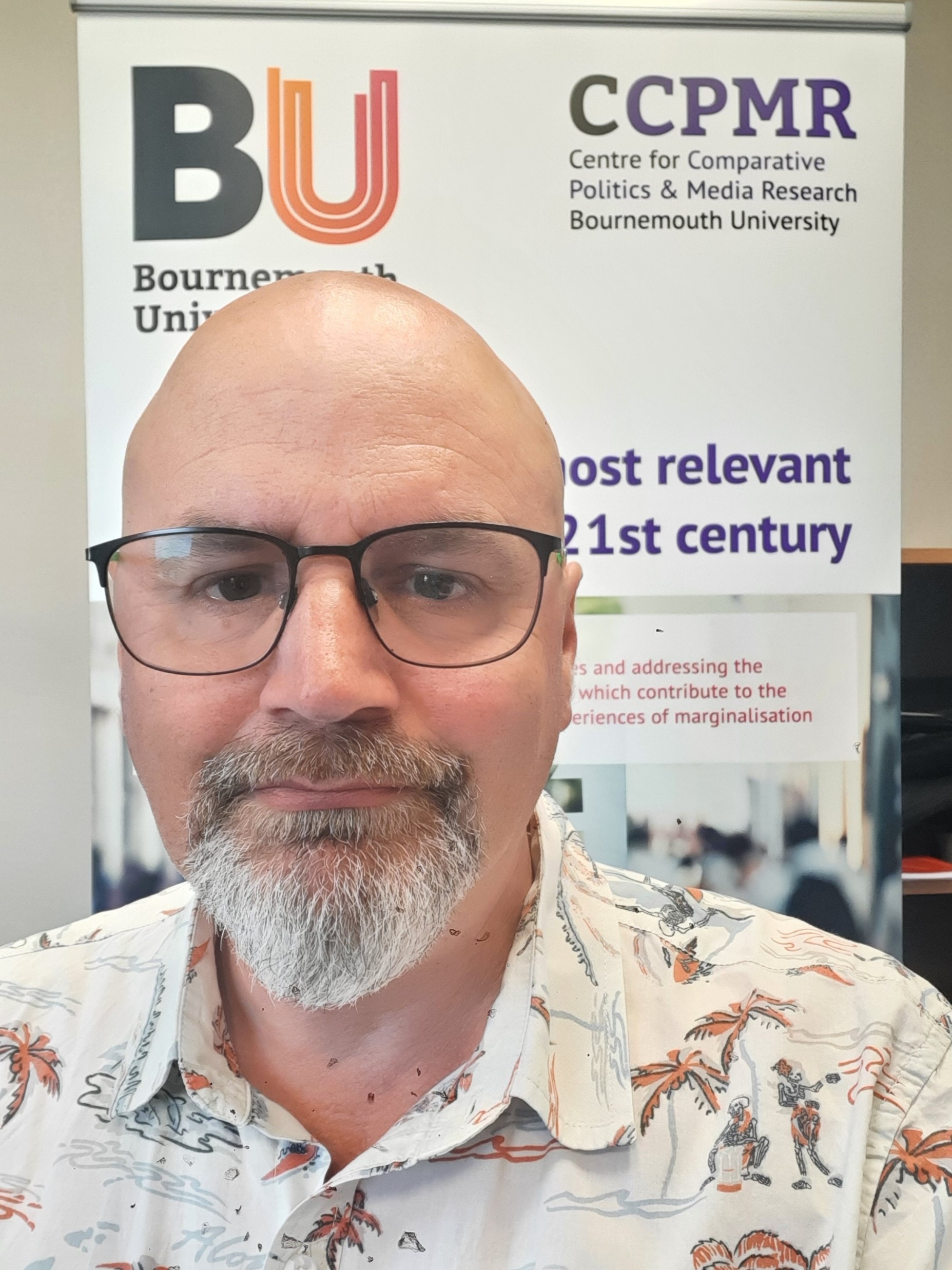Spectators or Citizens?
Anna Kynthia Bousdoukou
“The press is the best instrument for enlightening the mind of man, and improving him as a rational, moral, and social being”.[1] – Thomas Jefferson
The interplay between humans and different means of communication is complex and ever evolving, raising questions on the true meaning of democratic duties and obligations as well as the development of citizens into political beings or lack thereof. In the wider context of contemporary media culture, the SNF Dialogues addressed such questions, during a live discussion titled “Spectators or Citizens”, which took place on Wednesday, the 27th of September at Piraeus 260. The discussion welcomed Dr. Laurie Ouellette, Professor of Media and Cultural Studies at the University of Minnesota, Dr. Darren Lilleker, Professor of Political Communication at Bournemouth University, and Dr. Timothy Shaffer, SNF Chair of Civil Discourse and Director of the SNF Ithaca Initiative.
SNF Dialogues Director, Anna- Kynthia Bousdoukou’s introduction set out the context of the event: “Every day, every time, even real time, a flow of horrible news, is flooding our news feeds, our screens, and consequently our minds and our lives. The way that news is provided through today’s media can make us feel powerless, disengaged to be active, to participate and turn us into a mass of passive spectators”.
But before one discusses the foundations of the intersection between the media and citizenship, let us take a step back. Throughout the 20th century, among other means of communication, broadcasting was monitored by government regulations in order to promote informative and engaging content. In the same light, journalism was seen as a public good, an arena for viewers to become citizens and make political decisions[2]. However, according to Dr. Timothy Shaffer, he gave to the SNF Dialogues prior to the event, “[in the] Athenian model of democracy, everybody had to…show up in the Agora…everybody had to…be that informed citizen who could make decisions on behalf of others. Where we exist now and have for a long time, is that most of us don't think about that. So, we are by default spectators”.
Indeed, the 1980s set off to completely change the media landscape. Although economic liberalization and lifting of regulations broke down broadcasting monopolies and allowed for the emergence of multi-channel networks, this came at a cost. Newsrooms turned into commercial hubs, valuing profit above all. Ironically, the craze for profit resurrected the old broadcasting monopolies in the form of the corporate giants that are known to us today. As of 2022, the largest US media conglomerates including, among others, Comcast, Disney, and Paramount Global controlled more than 90% of the US media[3].
In any case, staying profitable has certain limitations; only pushing content that is desirable and popular. And what’s better than marketing promotions that will keep the housewife happy, celebrity gossip or sports news? Information then becomes “infotainment” and traditional journalism becomes “tabloidized”[4].
And although politics is not completely removed from the picture, it has turned into a reality show; a “horse-race” of controversy, conflict and political strategy narratives. According to an interview with Dr. Darren Lilleker, prior to the event “The media is strategic in identifying trends in public opinion and people's attitudes and exploiting those and giving them voice. And of course, they're very controversial…You need a really short, eye-catching controversial statement as your headline in order for people to click on it and go through and see the adverts and all the rest of it”. However, this strategy not only limits the ability of audiences to form sound critical judgment but often causes them to be cynical and indifferent toward political processes altogether[5]. This cynicism also known as “media malaise” refers to the feeling of disgust toward political news, the tendency to distrust the government and the limited desire to participate in the community[6].
In a 2017-2018 study in the UK involving 43 “news avoiders”, many called the news “doom and gloom”, a promoter of anxiety and uncertainty. Some even characterized the news as pointless, saying that they themselves lacked agency and were unable to act on what was being reported anyway[7].
In fact, since 2017, news avoidance has doubled. A Reuters 2023 survey involving 303 digital leaders in 53 countries showed that this feeling of powerlessness has primarily led to a staggering 58% staticity or reduction of traffic to online news sites[8]. As Dr. Laurie Ouellette suggested, during an interview conducted by the SNF Dialogues prior to the event, this might be because “[the media] create an illusion of the ideal of a liberal democracy…It's not so much that people…aren't interested. The problem is [one of] …excluding any kind of meaningful participation and any kind of meaningful democratic process”.
Is it, then, unfair to suggest that how we feel about the news determines our engagement in civic and political life? Not at all. With the news constantly championing turmoil and hateful narratives, the contemporary viewer is shifting from a citizen acting on the news, to a consumer of news, to finally an avoider of news, raising questions of whether we live in a “democracy without citizens”[9].
Political scientists and other scholars have gone as far as to suggest that we are no longer citizens but rather “tele-citizens” which has now slid into the realm of social media and online presence. The “tele-citizen” and its contemporary equivalents merely express their individual views on current affairs for short-term enjoyment or virtue-signaling without genuinely participating in public life. It’s no wonder why an Instagram repost, or an online government slander has almost completely replaced attending a public meeting, joining a protest, or communicating with somebody other than a Twitter troll. The paradox lies in the fact that despite broader participation due to technology, people, especially the economically marginalized and disenfranchised groups, still find themselves unable to genuinely participate. During the SNF Dialogues event, Dr. Darren Lilleker expressed:
Digital technologies allow everyone to have a voice to some extent. Anyone can speak, but not everyone can be heard.

Dr. Darren Lilleker, Professor of Political Communication at Bournemouth University
In any case, the “tele-citizen” seems to have politics. Decisions are no longer made based on political agendas but rather the personality of those behind such agendas[10]. Just like the citizen, becomes a “tele-citizen”, democracies turn into “tele-democracies” or online democracies, where the social media persona and commerciality of a politician is most valued, and the qualities of rationality and collectivity are replaced by selfishness and narcissism. During the event, Dr. Laurie Ouellette attributed this to the fact that:
What the media are trying to do is not to passivize citizens, but to activate them as fans. They are blurring boundaries between information and entertainment and politics.

Dr. Laurie Ouellette, Professor of Media and Cultural Studies at the University of Minnesota
However, there is another side to this media-citizenship coin that might breed hope. Mass media can still empower citizens in some cases. “Light entertainment”, such as talk shows, have brought private stories of sexual assault, poverty, mental illness, and discrimination into the surface, creating an accessible, bottom-up opportunity for open dialogue. Even cynicism is said to create passionate “critical citizens” rather than “turning them off” completely[11]. In this sense, the chasm between “citizen” and “consumer” is bridged, giving birth to the “consumer citizen”, a person who can still exercise their civic rights and duties while also living in a consumer economy[12].
The question, however, remains: if conflict-oriented, commercial or reality show media do still promote some sort of public participation, is this the kind of participation that we need in order to uphold our democracies? And if yes, what kind of democracies are we looking at?
In any case, for the media to inform the public, there needs to be a public in the first place[13], and when citizens are left out of the media-state “social contract”, the discussion on what journalism and the media can and should be becomes impossible. Citizens should become active participants and evaluators[14]. There has already been progress in that front, with the rise of citizen journalism; a participatory collaborative practice whereby members of the public can collect, analyze, and disseminate information without necessarily being professional journalists [15]. However, Dr. Timothy Shaffer invited everyone to look into the inverse relationship between citizenship and journalism:
Where is that line [between citizenship and journalism]? It is that sense of professional expectations of what it means to be a journalist. But I would almost flip it; how much do journalists think of themselves as citizens? How do we enable or support professionals to see themselves in a civic way?

Dr. Timothy Shaffer, SNF Chair of Civil Discourse and Director of the SNF Ithaca Initiative
In any case, it becomes evident that other participatory avenues are necessary. According to the same Reuters 2023 survey referenced above, among 211 respondents, 64% expressed the need for slow journalism and 73% pointed out the importance of constructive journalism, which aims at the social transformation of journalism into a promoter of positive public debates[16].
Nevertheless, whether we are pursuing a strictly “citizen” identity or a “consumer citizen” hybrid, whether we are aiming to restore traditional democracies or build new ones, we should make it a priority to evaluate the current state of our media as well as the potential need for reform. Can a reimagined media landscape, untethered from vested interests and biased narratives create an engaged citizenry capable of shaping their collective future?

